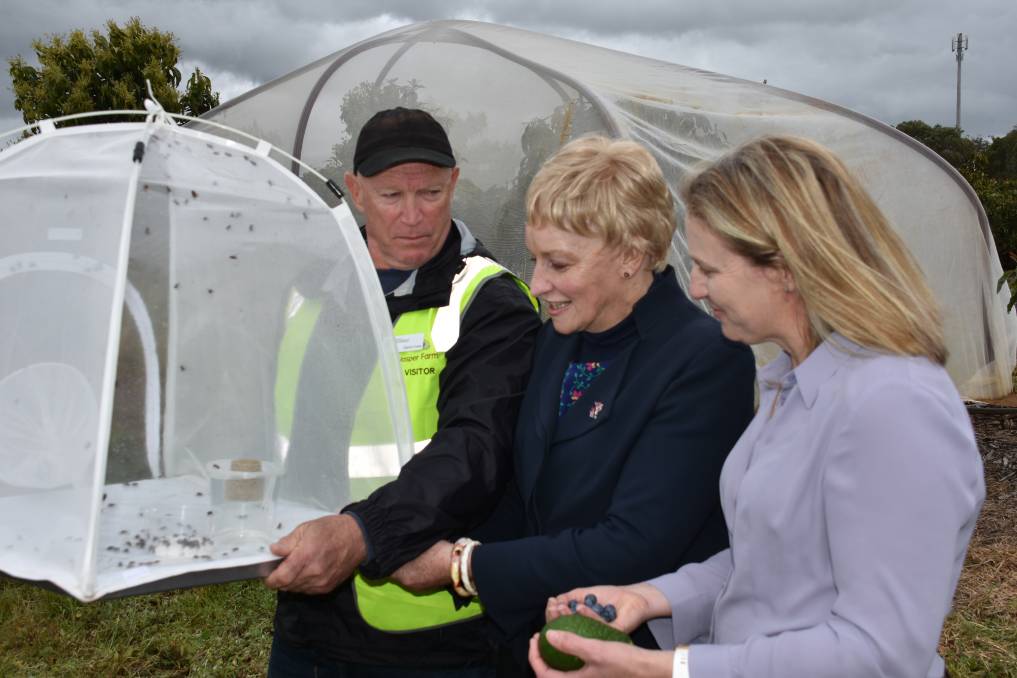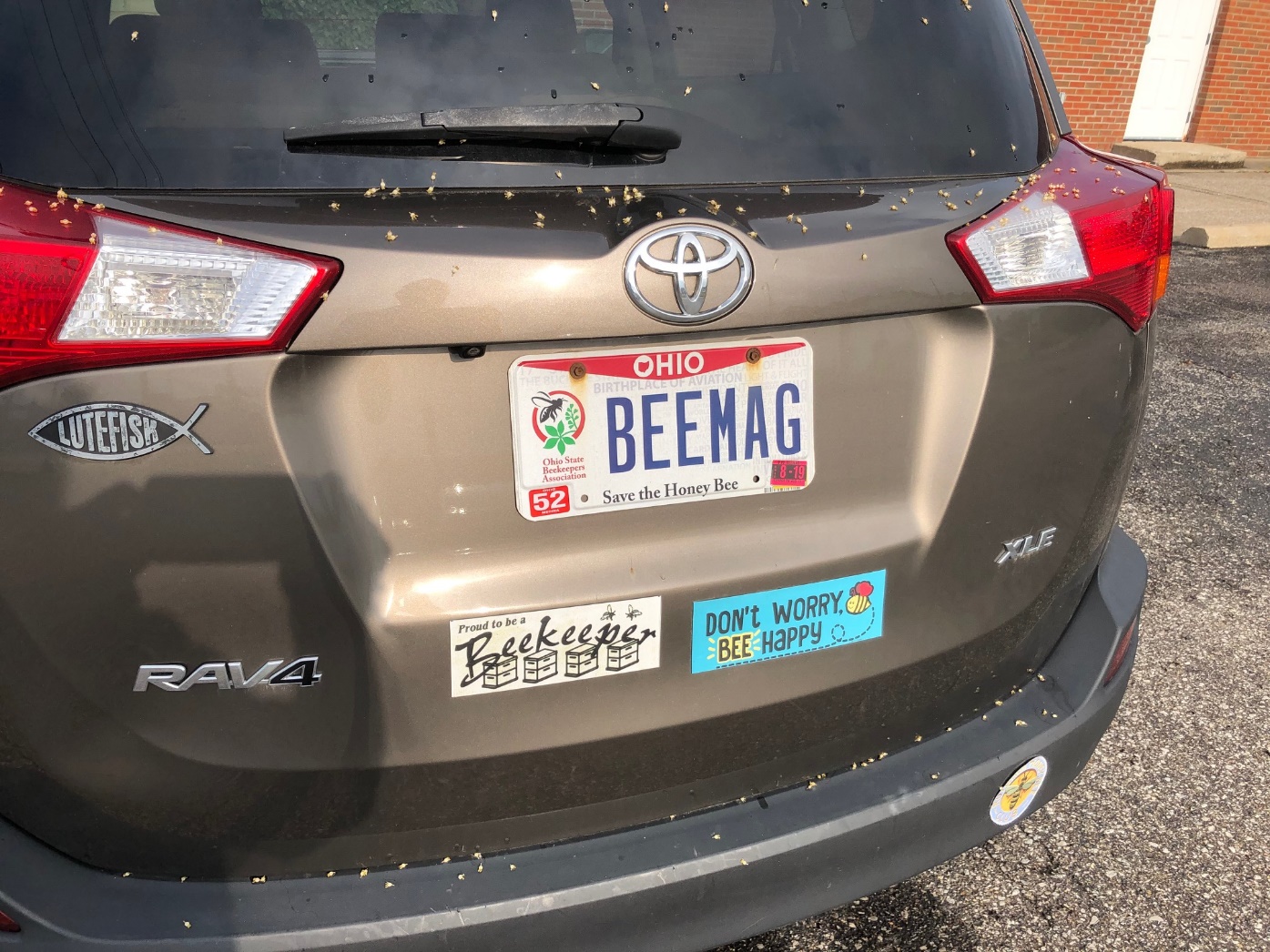Department of Primary Industries and Regional Development researcher David Cook, Agriculture and food minister Alannah MacTiernan and Hort Innovation Research and Development general manager Alison Anderson.
New research is underway in the South West looking at how native flies could replace bees as pollinators in the agriculture industry.
Jasper Farms is one of ten test sites in Australia which will participate in a $5.7 million research effort involving some of Australia’s leading researchers.
Pollination dependent crops are worth $6 billion a year in Australia, with bee populations under threat the research is looking at what other species could be used to pollinate crops.
The research is being carried out in conjunction with the Department of Primary Industries and Regional Development, Hort Innovation and UWA.
Hort Innovation Research and Development general manager Dr Alison Anderson said by exploring different pollination methods the project would arm Australian growers with more tools for success.
“Bees perform a wonderful service. What this project aims to do is support that service by determining which species of native flies could also effectively transfer pollen from plant to plant,” she said.
“We are looking at fluffy fly species that have no trouble attaching pollen to their bodies. We also want flies that are energetic, and travel reasonable distances up and down rows of crops, rather than staying in one area with limited movement.”
Teams at each of the trial sites are rearing certain species of flies and testing their performance on various crops, at different times of the day in various weather conditions.
Once the research is completed in 2023, results should show which types of flies pollinate best in each region.
Dr Anderson said if certain fly species prove good pollinators, researchers would determine the most efficient ways for growers to get access to the insects.
She said flies made ideal pollinators because they presented year-round, regularly visited flowers seeking sugar from the nectar, and their bodies easily picked up pollen.
“Flies are one of the most diverse animal groups in the world, being significant in agrobiodiversity and present in almost all habitats, where their pollination ability enhances seed and fruit production,” she said.
Dr Anderson said the project had the potential to extend to many horticultural crops, in particular protected cropping such as tunnel houses and glasshouses which did not have the benefits of natural pollination.
Jasper Farms agronomist Jacinta Foley said they were excited by the possibility of using flies as pollinators.
“The prospect of purposefully introducing alternative pollinators to service our avocado trees is an exciting one,” she said.
“We are very keen to find out which types of native flies are most effective at pollinating avocado crops, and how to encourage their activity at our almost 400-hectare property.”
The State Government has contributed $836,000 towards a five-year national research project to examine the use of different insect pollinators to complement the use of bees.
Agriculture and food minister Alannah MacTiernan said it was an exciting project for new insect pollinators to back up our honey bees.
Ms MacTiernan said the research would target native fly species to see if they were effective pollinators for commercial crops, with the WA trials targeting avocados and later berries.
“The research team has extensive entomological experience, specifically in the field of insect pollination of crops, vegetable seed production and native flies,” she said.
“This project is a fantastic national collaboration, with department researchers, the horticulture industry, universities and the private sector sharing their knowledge on innovative ways to benefit our fruit and vegetable industries.”
______________________________________________________________________________________________________________________________________
Show Us Your Beekeeping Plates!!
That’s the Editors License Plate…BEEMAG. He has a personal plate that he pays extra for, and he makes a contribution to the Ohio State Beekeepers Association so he has that extra bit on it, too. What we want from you is YOUR STATE’S Plate, with your beekeeping message on it. But this can work 3 ways….a simple personal plate that says something like BEEMAG. Or a regular plate that advertises your state association, like the OSBA does here, or your plate like this one that has both. Be Proud of your state, your plate and your message. Show the world your BEEMessage. Send a cell phone shot to info@beeculture.com, with PLATE in the subject box. We’ll share it with the world.








